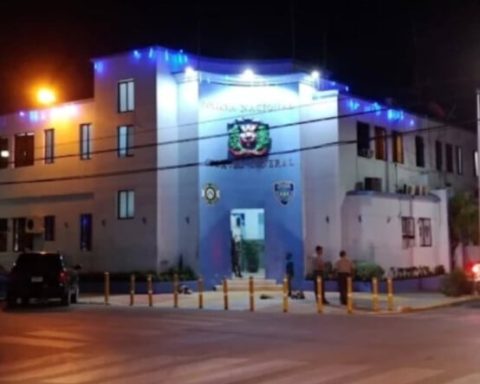The constitutional lawyer Namphi Rodríguez and the senator of the People’s Force Félix Bautista assured this morning that although the Domain Extinction Bill was submitted as ordinary, it was also endorsed with a qualified majority of senators, which makes it organic.
They also agreed that it is the results of the vote that make it binding for all sectors and therefore the deputies would have to treat it as an organic law.
“Although the report said that it was classified as ordinary, the law was approved with a qualified majority, consequently the law has the character of article 112 of the Constitution, it is an organic law, it has been approved as an organic law, and what what matters are the votes in the plenary session of the Senate, not the report, the report is not binding on the plenary session”, he maintained.
He added that “the Senate approved it as an organic law, not as an ordinary law, you can say that in the administrative procedure of the law there may be some discrepancy between the report and the final vote, but finally what is imposed is the final vote” .
Rodríguez argued that therefore when the piece is sent to the Chamber of Deputies, it should be treated as an organic law, because it had a qualified majority of 24 of the 27 senators present in the session.

He explained that what prevails is not the report provided by the bicameral commission, but the votes that are counted in the chamber, which in the end is the binding part.
He argued that it would be necessary to look at the issue of the retroactivity of the law, since the Dominican Constitution does not allow it. He considered that the Domain Extinction Law has a good purpose because in the Dominican Republic there are many capitals of dubious origin.
You may be interested in reading: Senate approves Extinction Law in first reading
He added that there is still time to make the corrections in place in what has to do with retroactivity.
“We are in time to make the necessary observations regarding retroactivity and bona fide third parties,” he said.

He added that “remember that this is a trial of the good, a trial of the assets, it is not a trial of the person, so it may be that a person who has acquired in good faith may be involved in undesirable situations, unjust, moreover, that is to save it, shield it in the law so that good faith is an element that exempts the possibility that a good acquired without subterfuge is persecuted through this procedure.
Rodríguez considered that the Chamber of Deputies has time to make the necessary corrections and even hold public hearings.
Meanwhile, Senator Bautista, of the People’s Force, maintained that although the full Senate rejected the dissenting report by PLD senator Yván Lorenzo, who asked that said initiative be an organic law, but when the time came for the vote, it was approved with a qualified majority and therefore it is an organic law.
The legislator explained that the vote was 24 votes, which is more than two thirds of those present in the session, which were 27.
“Although it was initially submitted as an ordinary law, the vote approved it as an organic law, for me what has value is the vote, it was approved as an organic law,” he said.
He added that “it was voted as an organic law, the organic laws are contained in article 112 of the Constitution, we have to regulate everything that has to do with fundamental rights through organic laws, the right to property is enshrined as a fundamental right, therefore the law of domain extinction is an organic law”.
















